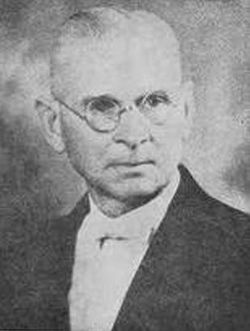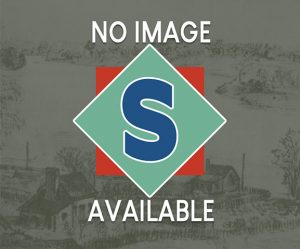Jethro Kloss - Soy Foods Pioneer
Jethro Kloss was one of America’s earliest and most creative soy foods pioneers.
Early Years (1863-1923). Born on 27 April 1863 in Manitowoc, Wisconsin, the ninth of eleven children, Jethro Kloss was a devout Seventh-day Adventist. He was deeply influenced by the books and teachings on diet and health of Ellen G. White. As a young man he took courses in hydrotherapy and electrotherapy at the Battle Creek Sanitarium. He knew Dr. John Harvey Kellogg, talked of him often, and had deep respect for his views on healthful living. As a young man he learned to study and follow the laws of nature, of life, and of health. This later became the essence of his teachings. Many of those who knew him considered his ideas on healing a bit odd or even fanatic, for he believed that virtually every ailment could be cured with herbs. Yet like so many of his fellow Adventists, his prime concern in life was helping others, and especially helping them to get well and to live better.
In the early 1900s, Kloss and his wife operated a branch of the Battle Creek Sanitarium in Rose Lawn, Wisconsin, and later in 1907 a Home Sanitarium in St. Peter, Minnesota. Natural healing methods, including hydrotherapy, herbs, and a healthful vegetarian diet were practiced in each place.
In about 1915 Kloss took over the Nashville Sanitarium Food Factory, a large health food plant in Amqui, Tennessee (near Nashville, 3 miles from Madison College, and right next to Edgefield). The plant had been formerly run by the Southern Union Conference of the Seventh-day Adventist Church. Here he produced a variety of new and creative health foods including a line of canned meat analogs made from gluten and nuts, cereal grain coffee, whole-wheat flour, five types of crackers, various breakfast foods, malt honey, and malt extract. No soy was used. Many of these products were based on ideas developed originally by Dr. J.H. Kellogg. In about 1917 this plant was purchased by Madison Foods, torn down, and rebuilt on the Madison campus nearby. Madison Foods invited Kloss to come to Madison and help set up the food factory there. He and his family lived and worked at Madison for 2-3 years. Many of Kloss’ original foods continued to be produced by Madison. In about 1920 Kloss and his family went to Brooke, Virginia, where he opened another such food factory plus a health food store, operated it for some years, then sold it.
Early Work with Soy foods (1924-38). In about 1924, while in Brooke, Virginia, Kloss started his first experiments with soy foods, making soymilk and dairy-like products, tofu, okra (soy pulp), patties, and meat substitutes the Kloss food factory. It is not clear from whom he first heard and learned about soybeans and soy foods. In 1926 he moved again, this time to Washington, D.C., where he and his family ran a market selling fruits and vegetables on Caroll Avenue. He continued his work with soy, and probably met William Morse and LeClerc, both of the USDA, whom he subsequently mentioned in his book Back to Eden. He probably learned more about soy from them and their writings.
In September 1932 an exhibit of soy foods, organized by William Morse, was sponsored by the American Soybean Association in Washington, D.C. Kloss, whose address was listed as Takoma Park, Maryland, exhibited fresh soymilk, pumpkin pie (with soymilk and soy flour), soybean cheese (tofu), soybean bread (20% soy flour), soybean buns, soy sprouts, and soybean cake (Gray 1936).
Back to Eden (1939). In 1935, while living in Takoma Park, Washington, D.C., after several decades of studying and writing, Kloss published the first edition of what was to become his magnum opus, Back to Eden. A revised and greatly expanded edition was published in 1939. This edition became extremely popular in the late 1960s and by 1986 had sold almost 3 million copies. Here he set forth his method of natural self-healing based on herbs, a diet that used no meat, dairy products, or eggs, and a life in harmony with the laws of health and nature. He opposed the use of sugar, spices, pepper, mustard, vinegar, and fermented foods. He recommended the use of soymilk in numerous healing diets and considered it far better than cow’s milk. Kloss’ main contribution to soy foods was the more than 50 creative American-style soy foods recipes he developed in Back to Eden. These included soymilk and tofu, and many dairy-like products made from them, including cream cheese, cheese, soy & nut cheese, soymilk cottage cheese and cottage cheese loaf, soy buttermilk, soymilk cream (soymilk with oil whipped in), soymilk ice cream (America’s second recipe for it), and soy butter (made from soy flour). Other recipes included canned soybeans, soybean coffee, soy sprouts, sprouts with rice, okra & brown rice patties, soy loaf, soymilk aspic or jelly, mock egg yolks, soymilk & okra pancakes, soymilk gravy, soy oil mayonnaise, soymilk pumpkin pie, whole wheat breads with soy flour and okra, soy & wheat spaghetti, and many soups using soymilk. Kloss called soybeans “The King of Beans.” Also, in the book he included a 4-page statement excerpted from Dr. J.A. LeClerc of the USDA (Sept. 1936) stating that “The soybean is going to revolutionize the future of humanity.”
Still one of America’s best-selling vegan (total vegetarian) cookbooks, Back to Eden continues to play an important role in introducing people to the value of soy foods. In 1974 as a spin-off from the earlier work, The Back to Eden Cookbook, also vegan, was published by Lifeline Books and Woodbridge Press. It is nw published by Back to Eden Books, an enterprise of the Jethro Kloss family. It also contains a lot of information and recipes relating to soy foods, although most of it is extracted from Back to Eden.
Jethro Kloss died in Tennessee in 1946 at age 83.


